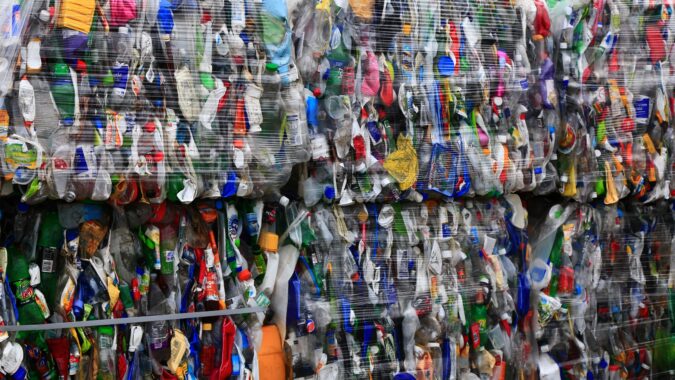Recycling Rewards – Rebates, Grants, and Tax Incentives
Recycling benefits the environment by preserving resources and saving energy, which can reduce carbon emissions and pollution. It can also introduce financial advantages for businesses and organizations via access to a range of rebates, grants, and tax incentives.
There’s currently no federal business tax credit for recycling, but various financial recycling rewards exist in different states, counties, and regions. Eligibility, criteria, and the value of recycling rebates, grants, or tax incentives greatly vary and can change regularly.
It’s best to check the specific terms and conditions for any recycling incentive you’re considering as close to the time of applying as possible. Get an idea of potential financial rewards for recycling by your organization with this introduction to recycling rebates, grants, and tax incentives for businesses in the US.

Recycling rebates
Businesses that produce large volumes of certain waste materials may qualify for recycling rebates. This is when a recycling company or materials recovery facility (MRF) pays to take the trash materials off your hands – rather than the other way round.
Usually, rebates are only possible for specific types of plastic (such as HDPE and LDPE), cardboard, metal, and other recyclables. This is because there’s value in the materials for recyclers to use when creating new products, so they’re willing to pay for them. Minimum volumes and weights often apply to be eligible for a recycling rebate.
Availability of recycling rebates depends on your location, the type and amount of material, and market conditions. Normally, waste must be baled to be eligible for a rebate. Prices fluctuate too, based on the current market value, the volume of waste, and who provides the rebate.
Other recycling rebates can vary across states, counties, and cities, such as the City of Austin’s Zero Waste Business Rebate. This is a rebate where eligible businesses might receive up to $3,000 if they reduce specific waste streams by specific amounts (beyond the minimum requirements of the Universal Recycling Ordinance). Businesses must be located within the Austin City Limits to qualify.
Tax incentives for recycling
Various state tax credits, equipment exemptions, energy-related grants, and other tax incentives exist that encourage recycling by businesses in the US. There’s no dedicated tax credit or incentive for recycling, but companies can take advantage of certain tax breaks at the federal and state levels to recover costs and earn tax credits from recycling activities.
Examples of tax incentives for commercial recycling in the US include:
- Qualified reuse and recycling property allowance – the Internal Revenue Service (IRS) offers this tax incentive. Purchased equipment or machines that collect, distribute, or recycle specific recyclable materials that have depreciated in line with guidelines of the Modified Accelerated Cost Recovery System (MACRS) may qualify for a 50% depreciation allowance.
- Qualifying advanced energy project credit – businesses investing in a qualifying advanced energy project for a manufacturing facility that creates microturbines, electric grids, some electric vehicles, or other materials may qualify for this incentive.
The government also offers various research and development (R&D) incentive programs related to waste management.
State tax incentives for recycling
Every US state has its own range of tax incentives. Some of these encourage recycling and waste reduction but are only available to businesses based in the state that meet specific criteria. Check with your state government for any incentives available.
US states such as Iowa, Louisiana, North Carolina, and Nevada have property tax exemptions for recycling machinery and equipment. The exact exemptions and specifics may vary across states. These are a few examples of tax incentives for recycling and waste reduction in some states, though they are subject to change:
- Arizona – the state offers a tax deduction for restaurants that donate food to non-profits serving free meals to people in need.
- Colorado – a tax credit of 25% is available for the wholesale market price of agricultural crops, livestock, eggs, and dairy donated to hunger-relief non-profits. A maximum of $5,000 applies annually.
- Kentucky – corporations can claim a 50% tax credit on any recycling or composting equipment.
- Missouri – a tax credit of 50% of any food donation (below $2,500 annually) to a local food pantry is possible.
- Virginia – the state offers tax credits of 10% of the purchase price to C corporations that buy recycling equipment or machinery.
Food waste financial incentives
Food waste is a big problem in the US and the wider world. To combat this issue, the federal government introduced and expanded tax incentives that cover food donations by businesses in 2005. It saw food donations increase by 137% the following year. Businesses must meet certain eligibility criteria to qualify for a tax deduction.
There are federal and state tax incentives that make donating food more cost-effective and financially appealing for businesses. These include:
- General (non-enhanced) tax deduction – this tax deduction covers the amount of the food (normally its cost to the business), which is often lower than the fair market value. Food donation must be used for charitable purposes and to a qualified organization covered by section 170 of the Internal Revenue Code (IRC).
- Enhanced tax deduction – the donating business can take off either twice the basis value of the donated food or the basis value of the donated food plus one-half of the food’s expected profit margin (when sold at its fair market value).
Recycling grants for businesses
Businesses can apply for a wide range of grants to support recycling endeavors and programs. Accessibility and eligibility vary depending on all sorts of criteria, including business type, size, location, and other factors. The potential amount of funding awarded also differs based on the specific grant.
Some recycling grants only apply to community organizations or materials recovery facilities (MRFs) that process recyclable materials. Searching for recycling grants available in your local area that your business should be eligible for is a great place to start, as they differ across states, counties, and cities.

These are a few examples of possible recycling grants available to some organizations:
- Solid Waste Infrastructure for Recycling – this provides grants to improve post-consumer materials management, infrastructure, recycling programs, and local waste management authorities. $55 million per year should be allocated from fiscal years 2022 to 2026.
- The Recycling Partnership– since 2014 the Recycling Partnership has mobilized more than $50 million in funds and grants to improve access, processing, and collections that boost recycling. This includes grants for community recycling programs, processors, and MRFs (publicly, privately, and non-profit owned). Various grants are available to support recycling operations for aluminum cans, PET plastic and plastic film, for example.
- Keep Texas Beautiful – various grants are available for recycling programs in Texas. These include Our Texas, Our Future Grants of up to $5,000 that might be awarded to initiatives that focus on recycling, waste reduction, or preventing litter in Texas. For full details visit the KTB website.
Arrange recycling rebates
with Business Waste
Navigating recycling rebates, grants, and tax incentives available for your business can be confusing, with differences across states. We can help by assessing the commercial waste you produce and advising on any potential recycling rebates your business may qualify for and how to access them.
We’ll review the materials you produce and the current market conditions to assess your eligibility. Speak to one of our friendly team members to discuss your needs, arrange a waste audit, or simply get a free quote for trash collections. Call 888 584 2118 or contact us online today.
Have your waste collected
Get a fast FREE quote for your waste collection 0800 211 83 90
- Free quote within 1 hr
- Any type of waste
- FREE bins and delivery
- We cover all of the UK
